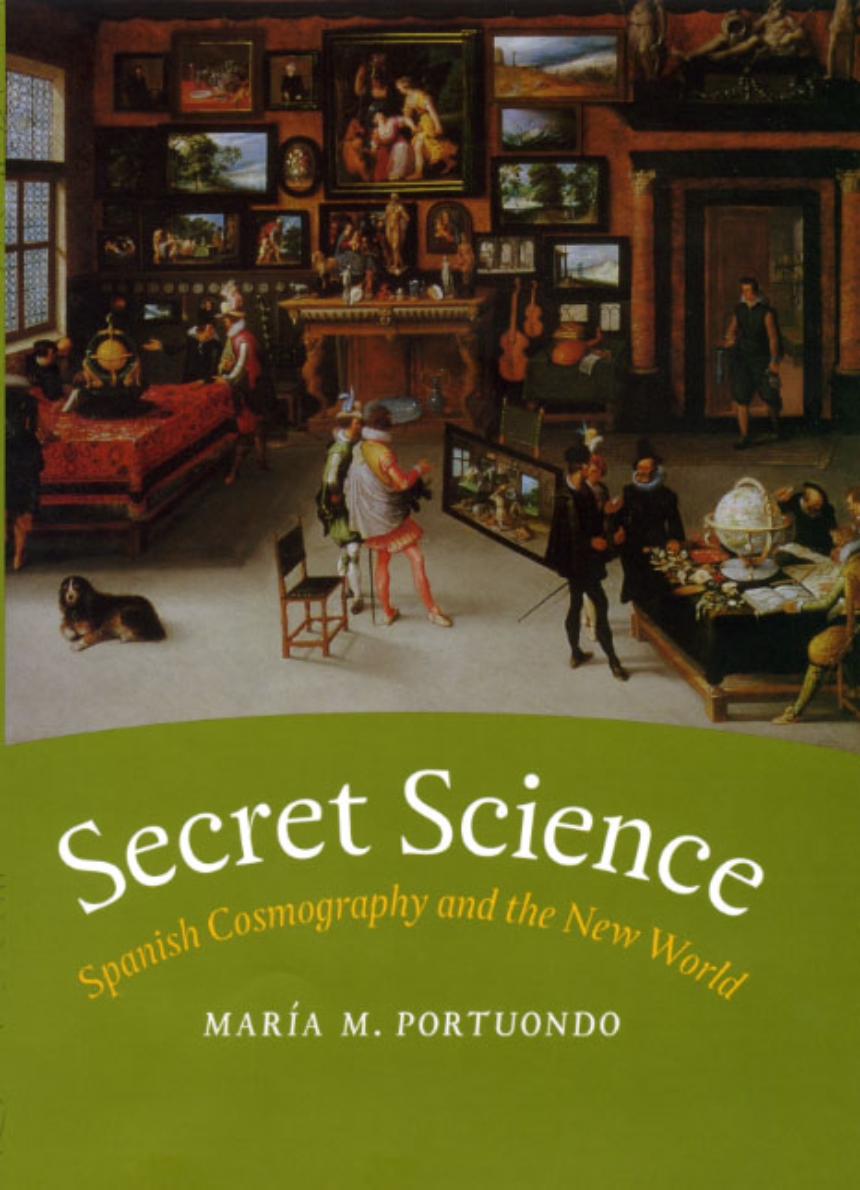Secret Science
Spanish Cosmography and the New World
The discovery of the New World raised many questions for early modern scientists: What did these lands contain? Where did they lie in relation to Europe? Who lived there, and what were their inhabitants like? Imperial expansion necessitated changes in the way scientific knowledge was gathered, and Spanish cosmographers in particular were charged with turning their observations of the New World into a body of knowledge that could be used for governing the largest empire the world had ever known.
As María M. Portuondo here shows, this cosmographic knowledge had considerable strategic, defensive, and monetary value that royal scientists were charged with safeguarding from foreign and internal enemies. Cosmography was thus a secret science, but despite the limited dissemination of this body of knowledge, royal cosmographers applied alternative epistemologies and new methodologies that changed the discipline, and, in the process, how Europeans understood the natural world.
352 pages | 10 color plates, 14 halftones, 5 line drawings, 5 tables | 6 x 9 | © 2009
Geography: Cartography
History: European History, Latin American History
Reviews
Table of Contents
List of Tables
Acknowledgments
List of Abbreviations
A Note on Translations
Introduction: Spanish Science and the New World
Chapter 1 Renaissance Cosmography in the Era of Discovery
Humanists Adopt Ptolemy: European Practitioners Create a New Discipline
Ideal Practice: Cosmography at the University
Cosmography and the Sea: Mathematical Rationalism and Navigation Books
Chapter 2 Cosmographical Styles at the Casa, Consejo and Corte
“Like Scattered Pieces of a Puzzle”: Compiling Knowledge of the New World
The Tordesillas Question
Alonso de Santa Cruz and His Cosmographical Opus
The Islario general
Experts to Explain the World: Juan de Herrera and the Expert Explorers
Cosmography at the Casa: Pilots and Maps
Chapter 3 Cosmography Codified
Cosmography as State Secret
Santa Cruz’s Guidelines
A Law to Define Cosmographical Practice: The Ordinances of Indies
Legal Culture and Cosmographical Methodology
Chapter 4 The Cosmographer-Chronicler of the Council of Indies
The Empire, Patronage, and the Humanist: Juan López de Velasco, 1571–90
The Reluctant Historian
The Cosmographer as Censor
Chapter 5 The Cosmographer at Work
Writing the Geografía y descripción de las Indias
The Censor Censored: Juan Bautista Gesio
The Sumario
Chapter 6 Constructing a Cosmographical Epistemology
Questionnaires and the relaciones geográficas de Indias
Eclipses and Longitude
A Global Project
The Lunar Eclipse Observations
Chapter 7 Cosmography Dissolves
A New Patronage Equation
Mathematical Practitioners Take Over
Mathematics and Cosmographical Epistemology
Chroniclers and Historians
Conclusion
Bibliography
Index
